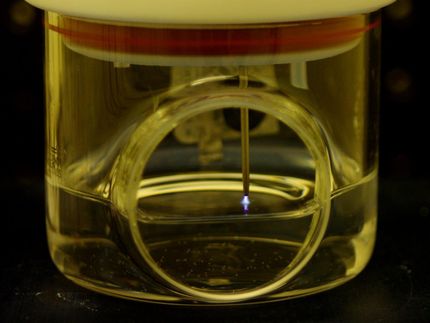New chemical synthesis could streamline drug design
New method gives drug designers more flexibility
Advertisement
A team of MIT chemists has devised a new way to add fluorine to a variety of compounds used in many drugs and agricultural chemicals, an advance that could offer more flexibility and potential cost-savings in designing new drugs. Drug developers commonly add fluorine atoms to drugs, such as the cholesterol-lowering rosuvastatin, to keep the body from breaking them down too quickly. Many of these drugs contain aromatic rings and attaching a fluorine atom to the rings can be a difficult, expensive process.
"It's hard to add fluorine at a late stage, once you have a complete molecule already put together, because traditional methods can be quite harsh with respect to temperature or other factors," says Stephen L. Buchwald, the Camille Dreyfus Professor of Chemistry at MIT.
In their new technique, Buchwald and his colleagues used a palladium catalyst to attach a fluorine atom to aromatic compounds. The technique could be used in the design and testing of new drugs, or to create new imaging agents for positron emission tomography (PET) scanning. Donald Watson, a former postdoctoral associate in Buchwald's lab, now an assistant professor of chemistry at the University of Delaware, is lead author of a paper describing the new synthesis in Science.
During the new process, the palladium catalyst removes a group of atoms called a triflate attached to the aromatic compound, then replaces it with a fluorine atom taken from a simple salt, such as cesium fluoride. This marks the first time chemists have replaced a triflate attached to an aromatic ring with a fluorine atom in one catalytic reaction.
"While the method is probably not currently efficient enough to be used in manufacturing, we are working to speed up the reaction, increase its efficiency and make it more environmentally and user-friendly," says Buchwald. "We ultimately hope to make it general enough to be useful for manufacturing."
Other news from the department science
Most read news
More news from our other portals
See the theme worlds for related content
Topic world Synthesis
Chemical synthesis is at the heart of modern chemistry and enables the targeted production of molecules with specific properties. By combining starting materials in defined reaction conditions, chemists can create a wide range of compounds, from simple molecules to complex active ingredients.

Topic world Synthesis
Chemical synthesis is at the heart of modern chemistry and enables the targeted production of molecules with specific properties. By combining starting materials in defined reaction conditions, chemists can create a wide range of compounds, from simple molecules to complex active ingredients.
























































